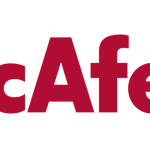- Industry: Software
- Number of terms: 9143
- Number of blossaries: 1
- Company Profile:
The act of sending an email that appears to come from a legitimate source, such as a bank, a company’s internal IT department, an internal employee, or a business partner. While phishing uses mass email, spear phishing targets a very small number of recipients. The email sender information may be spoofed so the email appears to originate from a trusted source. Messages typically request username and password details, provide a link to a website where visitors can enter personal information, or have an attachment containing a virus, Trojan, or spyware.
Industry:Internet
A type of filtering that scores Internet senders based on global messaging and communications behavior to block transmission of content to or from risky sources and sites.
Industry:Internet
This executable file, when run, drops a virus or Trojan on a computer system. A dropper file intends to create a virus or Trojan and then execute it on the user’s system.
Industry:Internet
This viral program uses a feature of DOS, allowing software programs with the same name but different extensions to operate with different priorities. It does not attach to other programs.
Industry:Internet
This file is part of the McAfee convention for naming viruses and Trojans. This suffix is attached to the end of virus names to indicate that the sample is damaged and will not run. Detection for these non-viable samples is added at McAfee Labs’ discretion, typically only if they appear in large numbers and cause an issue for many customers. If you detect a . Dam file, you can safely delete it.
Industry:Internet
An industry-standard connector on almost all modern computers. This connects multiple devices, ranging from keyboards and mice to webcams, scanners, and printers. Versions USB1 and USB2 differ in performance, but use identical physical connectors.
Industry:Internet
An application that scans a computer’s memory and disk drives for viruses. If it finds a virus, the application informs the user and may clean, delete, or quarantine any files, directories, or disks affected by the malicious code.
Industry:Internet
A virus found only in virus laboratories that has not moved into general circulation.
Industry:Internet
Also known as zero-hour threats and vulnerabilities, they include threats that immediately exploit a newly discovered vulnerability.
Industry:Internet
Any computer that has full two-way access to other computers on the Internet.
Industry:Internet
